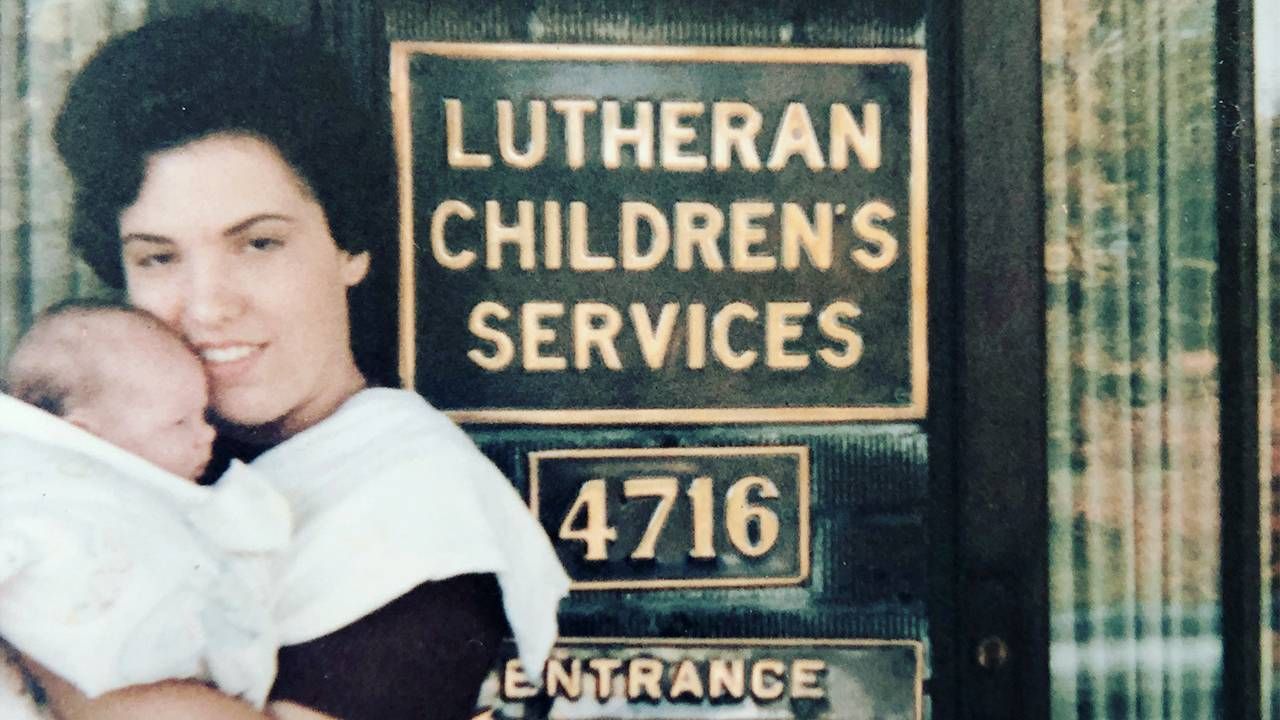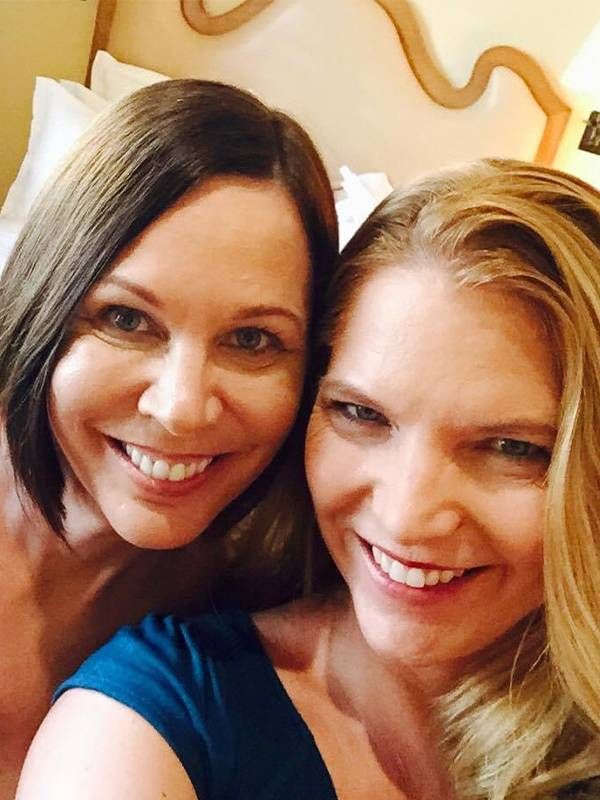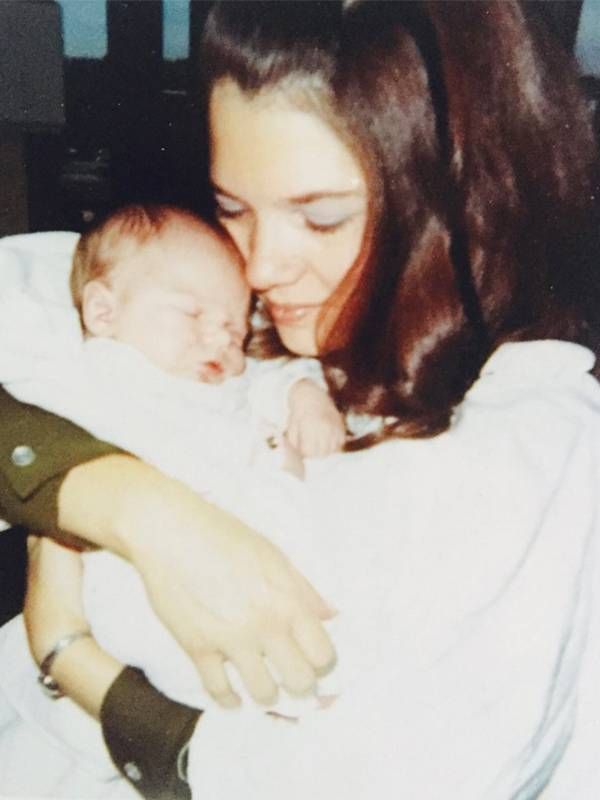Bringing Adult Adoptee Issues to Light
For many people there is lingering trauma, but resources and support are available
Sam Miller suffered from a genetic kidney condition and grew up his entire life not knowing he was adopted. In 2014, when he realized he would need a kidney transplant, he reached out to an aunt because both his parents had died.
It was then that he found out the truth — he'd been adopted, and that fact had been concealed from him all along. That began a search for his genetic parents, a secretive maze he had to unravel. It gave a whole new meaning to "family history" in his medical records.

Rachel Atiemo-Obeng was adopted as a baby. She remembers being told she was adopted as a small child, and then decided as a middle-schooler to secretively search for her adoption paperwork in the family home. She found her biological parents' info — pictures and an address. She wrote them letters that went unanswered. Years passed with no reply until a chance Facebook reach out connected the dots.
"In my mind, I envisioned this great reunion where I got to meet my mother and she greeted me with open arms, you know, but that's just not how it went."
"I'm kind of the family secret," she said. No one aside from her birth mother and grandmother knew she'd been born. The reception she received from her biological family was not welcoming.
"In my mind I envisioned this great reunion where I got to meet my mother and she greeted me with open arms, you know, but that's just not how it went," Atiemo-Obeng said.
There's an inherent belief that adoption always works out well for everyone involved: a loving couple seeks to have a child of their own, but perhaps cannot. They turn to the solution of adoption and eventually are paired with a child, perhaps an infant, sometimes an older foster child. The adoptee goes to a family who wants to raise them, love them and provide for their needs as they grow into adulthood.
The Complexities of Adoption
Seems like a simple process, one that meets the needs of all parties. However, this seamless process can be disrupted with all kinds of snags. For numerous people who grew up during the time of closed adoptions — a form of adoption where the biological parents have no direct contact with the adoptive family and the adoptive parents often know little or nothing about the biological parents — there can be much pain, suffering and unanswered questions, which leads to emotional struggles later in life.
Often called "private adoption," the closed adoption process shuts the door on facts to be uncovered in the future, including information about who the biological parents are, genetic information and a sense of identity for the adoptee — all crucial pieces to a familial puzzle.
According to the Adoption Network, there are an estimated 7 million people who are adoptees in the U.S. today. Many of these adults struggle with a gnawing sense of lost identity, emotional turmoil, substance abuse/addiction and suicide/suicidal attempts. Still more have feelings of low self-worth, self-harming behaviors, and abandonment and relinquishment issues.
Podcast Dedicated to Adult Adoptee Issues
In an effort to bring adult adoptee issues to light, two longtime friends, Sarah Reinhardt and Louise Browne, both adult adoptees themselves, founded Adoption: The Making of Me, a podcast which focuses solely on all aspects of adoption — from adult guest perspectives to DNA testing to theories on nature/nurture.
Both Miller and Atiemo-Obeng's stories can be heard on the show along with many others. Now in season two, the podcast recaps a chapter from books such as "The Primal Wound" by Nancy Newton Verrier or "Journey of the Adopted Self" by Betty Jean Lifton.

Reinhardt and Browne always follow their chapter discussion by interviewing select guests to engage in honest and intimate conversations around adoption struggles. The women have an easy rapport and a directness that "gets to the heart of a subject" and enlightens listeners about bringing adoption issues to the forefront.
Adoption: The Making of Me uncovers common adult adoptee themes, including what people grapple with as they grow up: how lucky they were to be included in a family, the secretive nature of adoption, genetic questions and fantasies around the biological parents.
"You have this realization, you were given this story that you're lucky, that you were 'chosen' — that's this narrative. When you finally come out of that, you find that's not true. There are so many different aspects (to adoption)," says Reinhardt.
"Genetics, DNA, is very powerful," she said. She remembers never identifying physically with her adopted family and always having a desire to go to New York City, the place where her mother was from. (Reinhardt was born in Missouri.)
There are other problems such as feelings of abandonment and disconnection.
"Every adoptee we know, no matter what the trauma is in their families — they could be in the world's best family or the world's worst family — they all have a sense of 'I can't get too close. I'm going to push you away, but then don't leave me,'" says Browne.
Navigating Hurdles of 'Secretive' Adoptions
As she explains, you grow up feeling "special" but then when you become an adult, it can affect you adversely. On the podcast, they mention the "baby scoop era", a historical period starting after the end of WWII and culminating through the early 1970's, when there was an increase in premarital pregnancies, along with a higher rate of newborn adoption. Many adoptions were very "secretive", and, as a result, adoptees today often don't have their birth certificates, depending on the state laws that prevail regarding such records.

This is all changing because of the advent of DNA testing and those biological results. People have a right to know who they are, both women agree, and there are still many hurdles regarding the protected records around adoption.
Browne's biological family "found" her as an adult (and she was made aware of her adoption prior). She said there are many adults who find out about their adoption later in life and it can be devastating to their identity. Both women admit that, as they are exploring themes in their podcast and interviewing guests and experts, they are learning much about themselves as well.
Connecting with Other Adoptees
Pamela Karanova, an adult adoptee, founded Adoptees Connect, a nonprofit organization devoted to putting adoptee voices first by generating a safe and valuable adoptee-centric space, created by and for adoptees, where their voices can be heard.
Started in Lexington, Kentucky, the organization has grown to include more than 50 affiliates in 43 cities and 27 states, plus a few groups in Canada.
Karanova explained that "being able to connect with other adoptees is the next best thing (to finding mental health help) that has saved lives because we're around people who are speaking the same language."
There is a need for adoptees to be given hope when they may be carrying the weight of shame over the fact that they were adopted.
"We are one of the first and only adoptee-centric resources anywhere," Karanova explained, adding that their organization is expanding internationally. "There is literally nothing for adoptees. You see adoption support groups all over the place, but nothing specifically for adoptees."
Adoptees Connect offers peer-led groups where people can find fellowship with other adult adoptees.
Finding Professional Help
For adult adoptees who are struggling with depression, anxiety, and other emotional challenges around identity, or feeling "left behind" or abandoned by their family of origin, there are organizations (such as Adoptees Connect) and trained professionals who can provide guidance.
"It isn't that we're adopted that's the problem, it's where the relinquishment starts.
Janet Nordine, a licensed clinician from Las Vegas, specializes in counseling adopted children and adults and has a unique understanding of the struggles they face.
Nordine explains, "The problem doesn't come from being adopted. The problem starts even before we're born, in utero, because maybe our mothers have already decided they're not keeping us for whatever reason and their stress hormones are going through our bodies and all those things are already happening before we're born. It isn't that we're adopted that's the problem, it's where the relinquishment starts."
She adds that "having an adoption-confident therapist that's experienced in adoption is so helpful." They should also be 'trauma-competent' because possibly (a typical therapist) may see adoption as beautiful and wonderful which discounts the trauma and possibly does more harm.
Having a mental health professional who identifies as an adoptee and works with adoptees and adoptive families in a variety of public and private settings is helpful, Nordine says. A list of U.S. adoptee mental health professionals can be found here.
Common misconceptions about adoptees are many. For example, Nordine often hears, "Apparently you drew a great card because look at the great family that you have, and you were found ... I've even had people say, 'When's your 'gotcha' day? And I don't have a 'gotcha' day," Nordine says. "That's the preconceived notion: oh, you're so lucky you found a great family."
In fact, she explains, there's so much more complexity to adoption and the feelings that can be left behind for those who are adopted. Others may examine physical characteristics of strangers, wondering if they are perhaps related. The longing for information of whom a person genetically belongs to is endless — literally trying to figure out who you were attached to in the womb — and plagues the thoughts of many.
Other more troubling factors for adult adoptees: addiction is prevalent, incarceration rates are higher and suicidal behavior is not uncommon.
Finally, she adds, "It's important to let people know it's okay to question where they've come from and who they look like and what traits they have of other people. There's no shame in wanting to know your roots and where you came from. It can also be a Pandora's Box when you open it."

